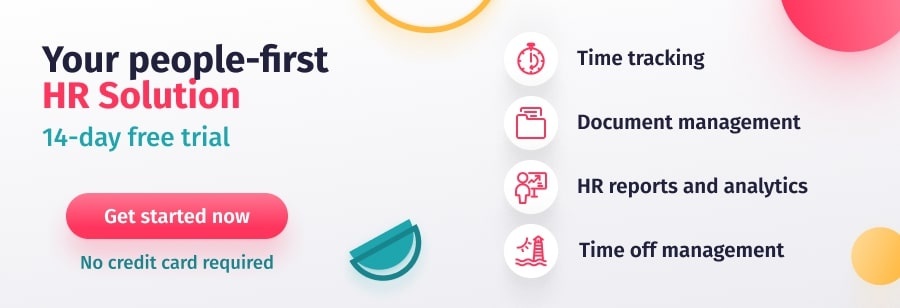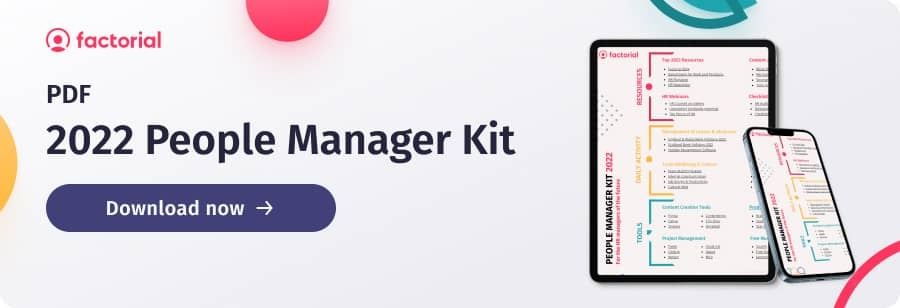Offices are reopening and HR positions are in demand. Many professionals are wondering: What are the different HR career paths? And what is the best option for me?
The time is right to ask these questions, especially with today’s job market. Within the past two months, there was an increase of more than 45% in HR job postings. Demand for professionals working in human resources exceeds that for other industries, like restaurants and retail.
Due to this shift, HR professionals are looking at their options. Some may be considering career advancement while others are taking hold of the opportunity to change positions.
What’s the best way to move forward? This guide will help to chart out a future HR career path with success.
- HR Skills and Competencies
- Types of HR Career Paths
- What is an HR Generalist
- What is an HR Specialist
HR Career Paths: Skills and Competencies
First and foremost, those who pursue an HR career path should know the skills needed as an HR manager.
Generally, successful HR professionals possess a hybrid of job knowledge and personal qualities, known as hard and soft skills. Hard skills are those that are more technical, job-specific, and easily taught. For example, legal knowledge and technological savviness. In contrast, soft skills are those that are more dependant on personality traits and emotional intelligence. For instance, conflict management and listening skills.
For HR Professionals, these are the most important qualities to consider
Soft Skills for HR
- Leadership qualities
- Active listening abilities
- Effective communication
- Conflict Management
- Adaptability
- Problem-solving skills
- Interpersonal skills
- Emotional intelligence
Hard Skills for HR
- An understanding of HR metrics
- Fluency in labor laws
- Knowledge of HR practices
- Experience with HR software
Although soft skills are a bit more difficult to develop, it is possible. Professionals wishing to advance in their HR career paths may benefit from soft skills training courses and team-building activities. With self-evaluation, HR professionals can measure their strengths and find the best-suited career options.
Types of HR Career Paths
HR career paths are not always straightforward. Some professionals advance from entry-level assistants to managers. Others, however, choose to move from a generalist to a more specialized role. Job availability, personal strengths, and training opportunities all factor into career progression.
Within a company, size and organization determine HR-related needs. Larger companies might need an ample HR team and have several distinct positions carved out. Smaller companies, however, might only need one or two personnel to carry out HR processes.
In short, HR career paths are divided into two categories: generalist and specialist. HR generalist positions are responsible for several different HR-related tasks while specialists are experts in a specific field.
What is an HR Generalist?
HR generalists are versatile individuals who have a good broad understanding of HR functions. In sum, they are masters of variety and multitask. Often, this position attracts personalities that resist repetition and enjoy connecting parts of a moving whole.
HR generalist positions work especially well in small business settings where there are no divisional roles. However, in larger business settings, specialists might be more commonly found.
Although not always, the HR career path for generalists traditionally moves from HR assistant to a mid-level manager position. With time and experience, professionals can advance to a more executive director role.
HR Assistant
This is the position that many have upon entering the world of HR. HR assistants have their hands in a little bit of everything! It’s a great opportunity for those who wish to establish a base knowledge of HR’s diverse functions.
Above all, HR assistants serve as the right-hand person to HR managers. From recruiting to payroll, individuals working in this position might carry out whatever tasks are needed to move forward. Although it isn’t always the case, often, the responsibilities are administrative and data entry is a crucial part of the job.
The specific tasks for this position might include
- Administration
- Recording absences
- Posting job vacancies
- Calling references of applicants
Software for this position: Time Off Management Software, Employee Time Tracking Software, Shift Management Software
HR Managers
Human resources management roles are usually filled by professionals with more than 3 years of HR experience. Essentially, HR managers act as a bridge between the goals of the employees and those of the company.
In general, they are responsible for overseeing all HR tasks. In addition to this, their duties include recruiting, training, payroll, managing performance, and employee relations. Additional support and supervision might come from HR directors, VPs and Cheifs.
Software for this position: HR Management Software
HR Directors and Chiefs of HR
HR directors and CHROs are the top positions of the HR department. Generally, they are leaders with a wide influence on the direction of the company. Both are executive positions for professionals with at least 15 years of experience. CHROs in particular work in close contact with the CEO and other members of the C-suite.
Responsibilities include developing strategies, coordinating, and organizing the HR team. HR directors and CHROs ensure that the HR department is aligned with the company’s quarterly and annual goals.
Software for this position: OKR Software
What is a Human Resources Specialist?
In short, HR specialists are individuals with a specific skill set and knowledge of a particular discipline. Specialist titles encompass a range of fields, from DEI to payroll to recruiting. Here are brief descriptions of some of the most commonly found positions.
Head of Learning and Development
Specialists in L&D work to develop and strengthen training programs, onboarding, and professional growth. These individuals are highly skilled at recognizing gaps between the workforce’s skillset, and the company’s objectives. In addition to keeping tabs on employee progress, they organize programs to help train team members for success.
Software for this position: Training Management System
Recruiters
Recruiting managers or talent acquisition specialists are conductors of the hiring process. They are adept at recognizing new faces to bring the organization to the next level. In addition to sculpting the company’s workforce, they oversee all stages of recruitment and selection.
In general, recruiters find ways of promoting job opportunities, selecting and interviewing candidates, and providing onboarding and orientation to new employees. While hiring new talent, they look for ways to ensure a good candidate experience and project a positive brand image.
Software for this position: Applicant Tracking System, Onboarding and Offboarding Software
Diversity, Equity, and Inclusion Managers (DEI)
DEI specialists are in charge of creating and managing the company’s efforts and goals towards diversity, equity, and inclusion. Their responsibilities might include hiring a more diverse team, working to eliminate unconscious bias, and developing workplace inclusivity training.
In general, individuals who specialize in DEI management look for underlying problems preventing the company from achieving its DEI goals. Upon detecting problems, they consequently develop strategies to improve workplace diversity and inclusion. Subsequently encouraging all employees to participate and value the contributions of others.
Software for this position: Performance Management Software
Payroll Manager
HR professionals who choose to specialize in payroll make sure that employees are paid in an accurate and timely manner. They are responsible for revising hours, calculating payments, and understanding and withholding employment taxes. Payroll managers also oversee deductions and employee benefits.
Deciding to specialize in payroll might be right for individuals who like to research and stay current with new employment laws. Or, those who are skilled with calculations and numbers.
Software for this position: Payroll variations, Expense Management Software









